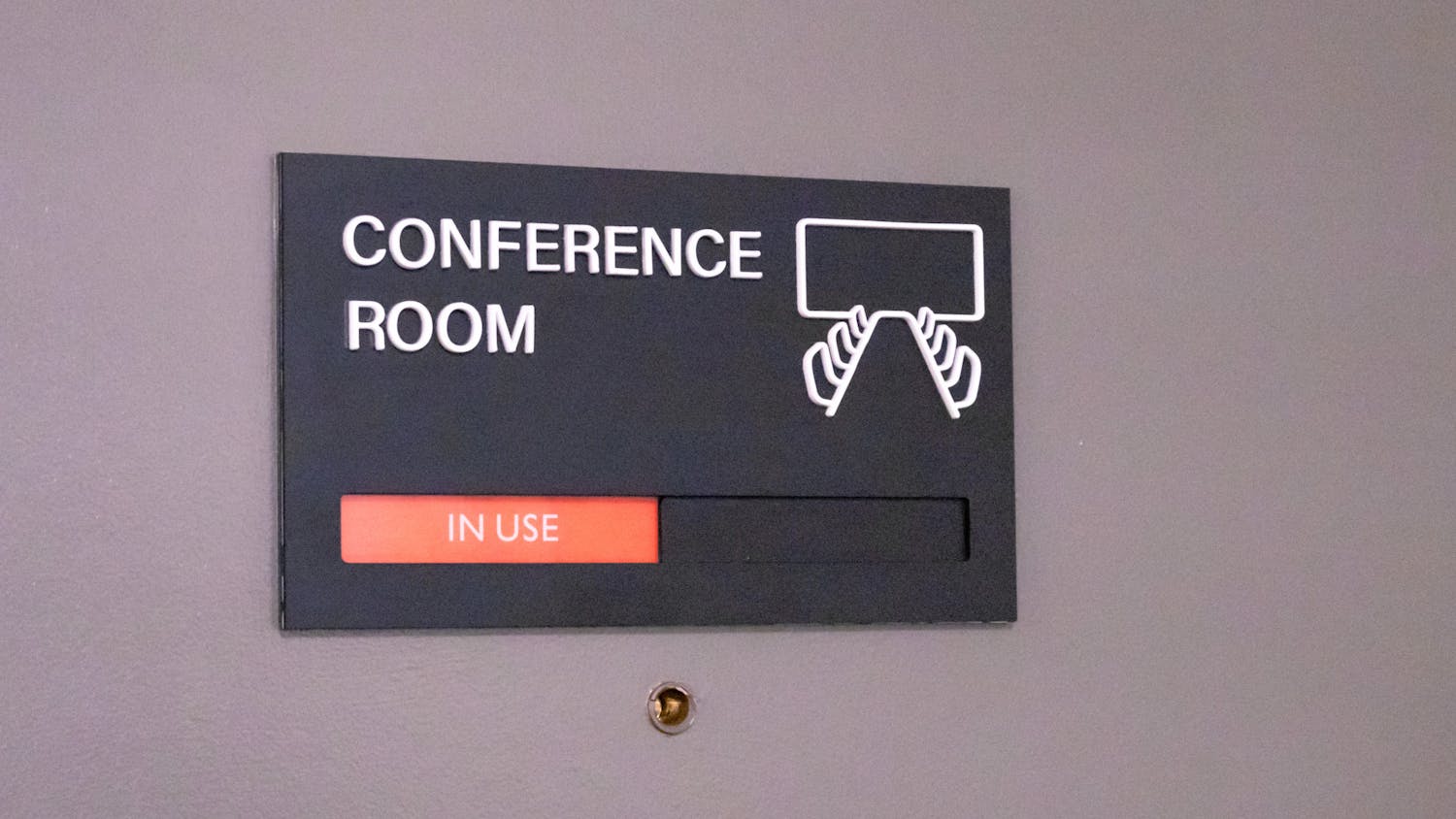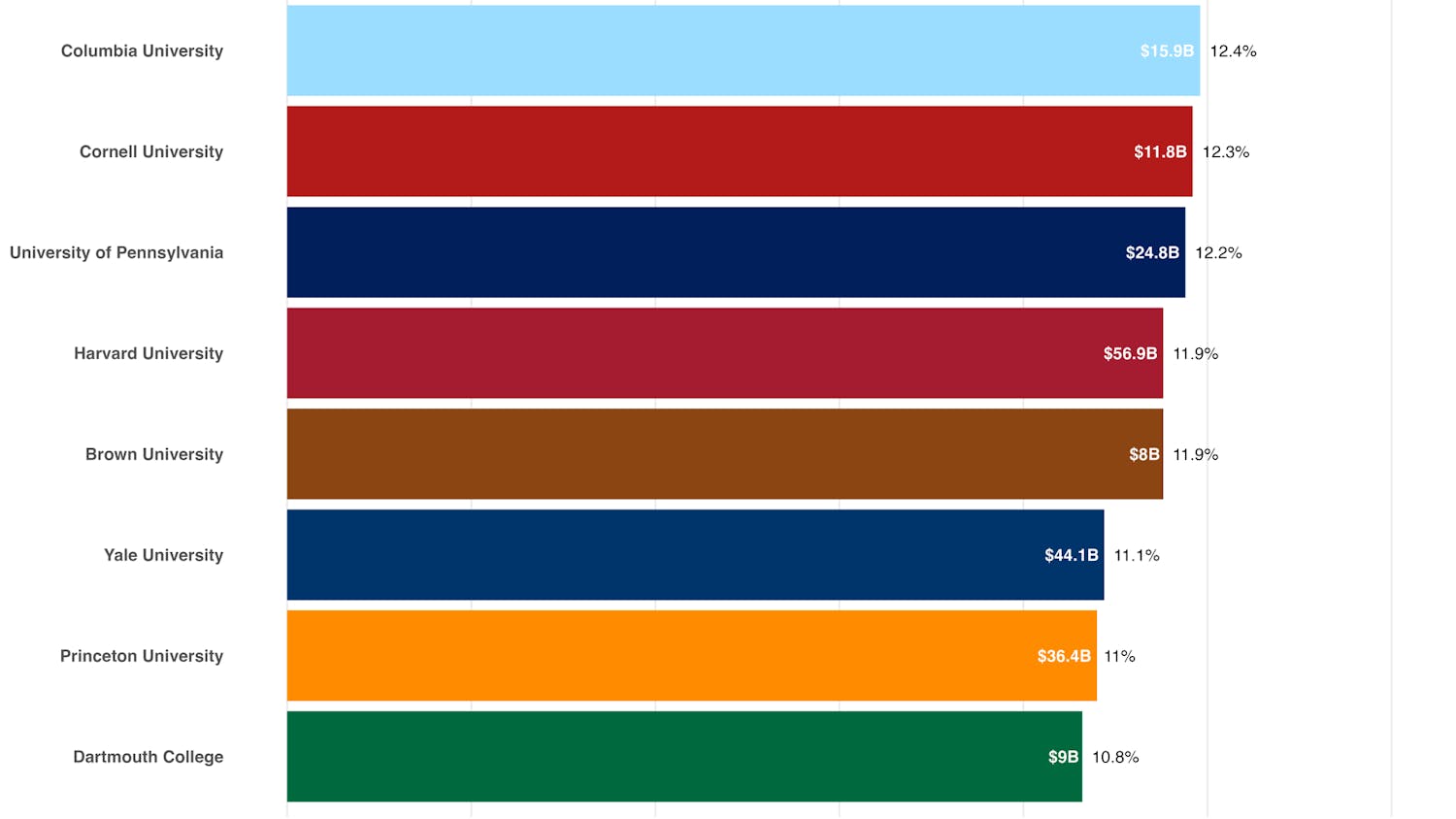Dr. Gil Welsh, who teaches a course at Dartmouth Medical School, said doctors should treat fewer low-risk people than currently treated in a lecture Monday evening.
Nearly one dozen students, many of them planning to be doctors, attended the lecture, which was held at the Zimmerman Lounge in Blunt Alumni Center.
Welch, a general internist by training, teaches a course at DMS on managed health care and practice patterns.
In 1993 he published an article in the New England Journal of Medicine titled "Advances in Diagnostic Imaging and Overestimation of Disease Prevalence and the Benefits of Therapy," which he repeatedly cited during the lecture.
Focusing mainly on heart illnesses, Welch talked about common measures of disease prevention, especially early testing.
Welch began by explaining the different "risk groups," susceptible to a given disease and to what degree the medical community should focus on each group.
Using heart disease as an example, Welch said the group of people with the highest risk of developing heart disease usually receives the most medical attention.
He also asserted people with moderate amounts of risk deserve significant attention, because this moderate-risk group includes the greatest number of members.
"Will it cost more? Yeah sure, it involves more people," Welch said. "There are very few preventative strategies that save money."
The classical exceptions to this rule are vaccinations and efforts to maintain water quality, he added.
On the other hand, those in the low-risk category should not undergo much screening or preventative treatment, he said.
Welch also asserted too much screening could do more harm than good, because some forms of testing pose risks to people.
With several graphs and hand drawings, Welch illustrated how testing healthy people could harm them. Treating people before they actually show signs of a disease could be a mistake as well, he said.
At a time when health care corporations are testing more frequently and with better techniques than ever before, Welch suggested they step back and conduct less extensive screenings.
"Are there a lot of doctors who disagree with me?" he asked rhetorically. "Yes. Vehemently."
To support his argument, Welch discussed "pseudo-disease," the condition which occurs when overly sensitive testing finds maladies which are not necessarily harmful.
"Pseudo-disease is getting to a bigger and bigger problem," Welch said.
When these pseudo-diseases are diagnosed, it can lead to emotional trauma and unnecessary treatments which waste money, time and can harm patients, he said.
Welch cited breast cancer and prostate cancer as illnesses often misdiagnosed. Too often physicians find small "subtle" cancers, a "ludicrous number" which are not actually life-threatening or otherwise harmful, or at least not worth the risk to treat considering treatments involve radioactive medicines, he said.
The lecture was the third and final installment of the C. Everett Koop Institute's Health Policy and Ethics Seminars.



